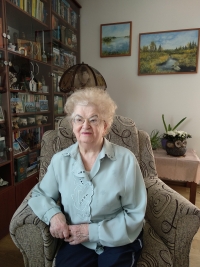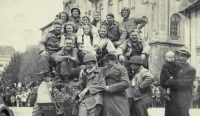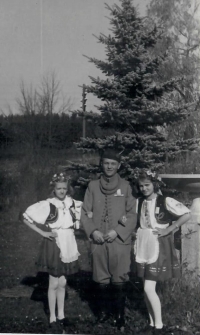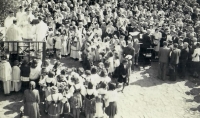The revolver hidden under the mistletoe wasn‘t found during the search

Stáhnout obrázek
Jiřina Sýkorová was born on 24 April 1933 in Plánice. She lived through the Second World War in nearby Nepomuk, in western Bohemia. Here she experienced the mobilisation in 1938, the air raids on Pilsen towards the end of the war and above all the terror of the Heydrichiad. Her father, a former falconer, had a revolver hidden at home and only by a lucky chance was it not discovered during a search. In May 1945, Nepomuk found itself on the demarcation line and experienced an encounter between American and Soviet soldiers. In 1948, the family moved to Karlovy Vary, where the witness graduated from the business academy. She sensed the oppressive atmosphere of the 1950s and the relaxation at the end of the following decade. She joined the Communist Party at that time, but after the August occupation, she lost her membership during the normalisation checks. However, she was able to continue working as an accountant. In 1989 she took part in the demonstrations during the Velvet Revolution, which she welcomed with enthusiasm. Soon after, she entered the University of the Third Age at the Faculty of Arts of Charles University in Prague. In 2021, she was living in Příbram.



